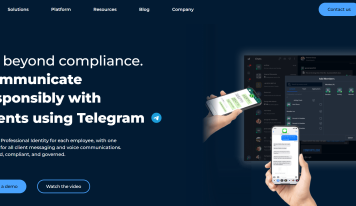Lessons Learned From Microsoft, Cisco, Volkswagen, Mazda and Apple Misteps
Why do Cisco and Microsoft have trouble entering new consumer markets and why does Apple have challenges when trying to get into the enterprise server market? According to an article from Rob Enderle, President and Prinpal Analyst, Enderle Group the reason has to do with poor management choices which have more to do with seniority than ability – coupled with starving new products of the resources they need to make it.
I agree with many of the points he makes and the fact Redmond actually decided turd brown was a great color to use when competing with Apple is hard to digest (sorry). But in addition to the thoughts from Enderle I would add there is a positioning challenge facing these companies as well. In today’s world where everything seems to revolve around clicks and search ads, most companies don’t even seem to know what positioning means.
And its too bad because companies fail every day because they generate lots of leads that won’t turn into business. A laser-like focus on measurable marketing ROI is actually killing to companies which need to brand or rebrand as they extend themselves into new markets.
The fact is when I think Microsoft I think corporate software, Costco – I think warehouse superstore, Cisco brings to mind corporate solutions, Campbell’s makes us think of soup, McDonald’s brings to mind fast food, etc.
Some of the biggest blunders I have witnessed when it comes to branding and positioning have been in the automotive space. The first was the Mazda Millenia – a car designed to be part of an upscale luxury brand Mazda couldn’t afford to launch. This incredible car was as good as many cars it competed with and in some ways surpassed them but car buyers didn’t relish buying a Mazda when they could buy a Lexus – even if they saved money. You see Toyota went out and built a new brand because they realized the Toyota name could not successfully apply to inexpensive and ultra-expensive vehicles. Predictably, Mazda’s positioning in the market didn’t support this amazing car. And after seeing this financial disappointment, Volkswagen decided to also spend billions of development dollars to launch the Phaeton, a car more advanced than most of what Mercedes and BMW had but costing less. The lesson had to be learned again – the Volkswagen brand did not support this car – even though it had air vents which were hidden by expensive wood when not in use, an optional 12-cylinder engine and electric-massage units built-into all the seats.
If some of the largest car companies have lost billions making mistakes obvious to those who are cognizant of branding, it should come as no surprise the small company looking to sell equipment to an enterprise or a carrier doesn’t know what they need to do either.
We all acknowledge that Cisco is a very well-run company and that’s why I was thrilled that they took years before they killed the Linksys corporate name. They realized they needed a long time to position their company as a leader in the consumer electronics space. And most people would argue they never branded themselves as a consumer products company.
These issues will come up more and more as companies look to extend into new markets and leverage technology to break existing product purchase relationships. One recent example is Cisco selling servers, HP pushing its own networking gear and Oracle selling Sun hardware.
But it gets more complicated with Amazon selling apps, Google continuing to become a social networking company, Microsoft becoming a cloud player and Cisco trying to become a consumer company.
Perhaps the best book I have read on the topic is Positioning from Al Ries and Jack Trout and I suggest every CXO, president and person in marketing read it. In closing, it is worth pointing out the world will continue to get more competitive and if you aren’t expanding while successfully branding your new intiiatives you run the risk of failing.
I go into far more detail on many of these issues in a recent podcast titled No One Buys Without Trust I was on with Peter Radizeski and I will touch on many of these points in a TMC-sponsored webinar series on online communities and how to build them – the first one kicks off this week, March 30th, 2011, from 2:00pm – 3:00pm EST.





